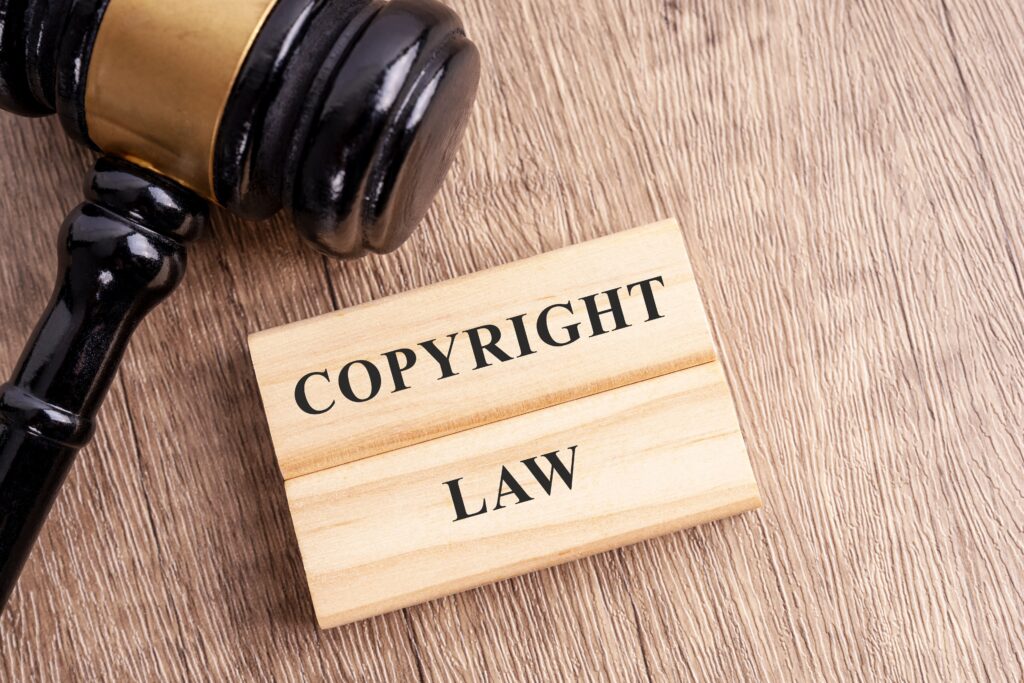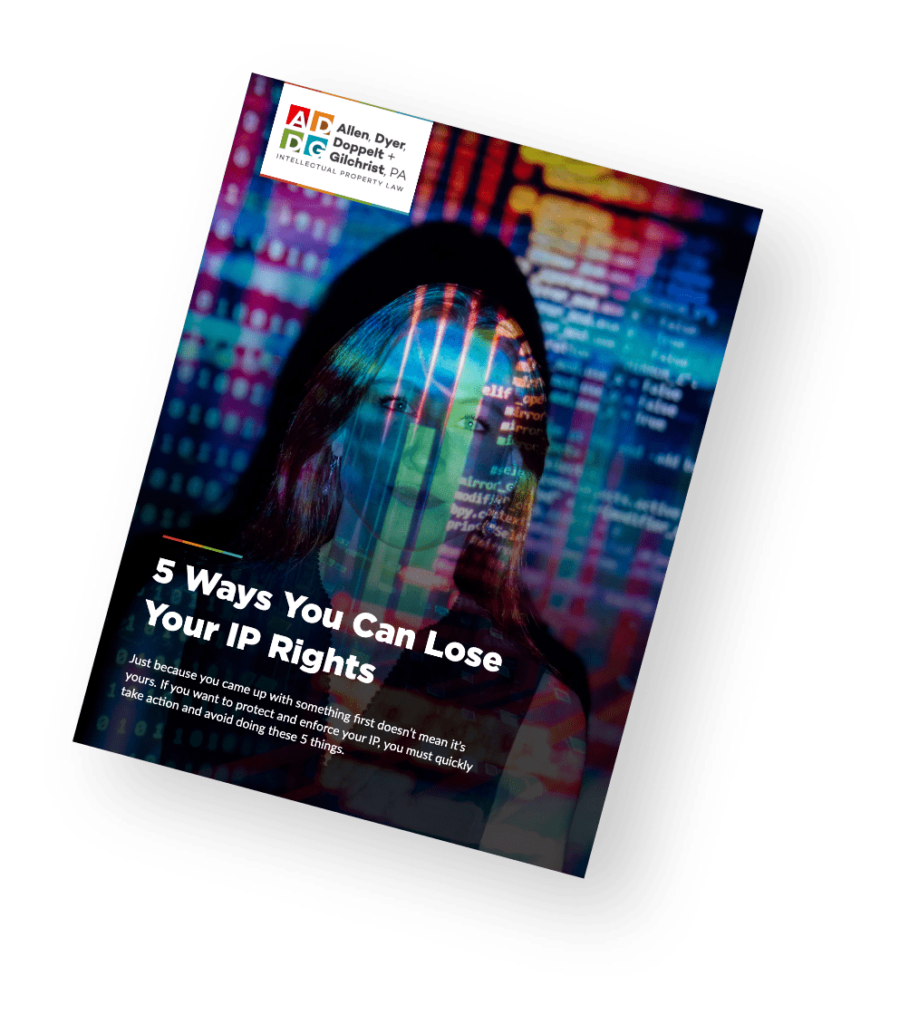Creating original blog content requires significant time and effort, and copyright law helps creators safeguard their work so that blog posts, images, and other unique materials are legally protected from unauthorized use. While copyright is typically associated with books, films, or other physical media, you might be surprised to learn that blog content is equally covered under these laws. Keep reading to learn more about how copyright law affects blog posts, enabling you to protect your work and know your rights.
What Is Copyright Law?
Copyright law is a form of intellectual property law that grants creators exclusive rights over their original works once they are “created and fixed” in a tangible form. In the United States, these rights are protected under the U.S. Copyright Act, and allow creators to control how their work is reproduced, distributed, and displayed. Copyright law also gives creators legal resources to act in the event that their copyrighted work is infringed upon.

Copyright Protection for Blog Posts
When you publish a blog post, your content is automatically protected by copyright law the moment it is created. This means that your written work, once published, is legally recognized as your intellectual property. Under U.S. copyright law, this protection includes exclusive rights to reproduce, distribute, and display the content as you choose.
This protection covers more than just text; it applies to any original material in a blog post, such as images, videos, or graphics, provided these elements are also original creations. Copyright, however, protects only the expression of ideas, not the ideas themselves. For instance, while the unique way you write about a topic is protected, the general idea or concept is not.
Fair Use and Blog Content
Fair use is a concept under copyright law which allows limited use of copyrighted material without permission in specific situations. For bloggers, this means incorporating excerpts, images, media, or other elements from copyrighted works into their content.
The fair use doctrine considers four key factors to determine whether a use is permissible:
- Purpose and character of the use: Non-commercial, educational, or transformative uses (where the work is repurposed with new meaning) are more likely to qualify as fair use. For example, a blogger might use a brief quote from a book to review or critique it.
- Nature of the copyrighted work: Uses of factual or publicly available works are more likely to be seen as fair than those involving highly creative works, like novels or photographs.
- Amount and substantiality of the portion used: The less you use, the better. Using a short excerpt or a small part of an image may be acceptable, but using large or significant parts is less likely to fall under fair use.
- Effect on the market: If your use could replace the original work or impact its market, it’s unlikely to be considered fair use. For instance, using an entire article from another blog would likely infringe upon the original creator’s rights.
When in doubt, it’s always best to seek permission from the copyright owner to avoid potential infringement issues.
Avoiding Copyright Infringement
Copyright infringement occurs when someone uses copyrighted material without permission, which can lead to severe legal consequences. For bloggers, the best way to avoid infringement is to create original content, as this minimizes reliance on others’ work. When using content created by others, seek permission or use licensed materials, such as Creative Commons images, which provide clear terms for reuse.
Another way to reduce risk is by using public domain resources, as these works are free of copyright restrictions. If quoting or referencing someone else’s material, limit your use to short, relevant excerpts to support fair use.
Using Images and Media Legally
Incorporating images, videos, and other media can enhance blog content, but remember to use these elements legally to avoid copyright infringement. Here are a few guidelines to ensure you’re using media responsibly:
- Use your own media: Whenever possible, create and use your own images, videos, or graphics.
- Utilize licensed content: If creating your own media isn’t an option, consider using licensed content.
- Rely on public domain resources: Content in the public domain is free to use without permission or attribution.
- Attribute when required: If the media you use has a Creative Commons license or similar license requiring attribution, include a visible credit to the creator.
Citing Sources in Blog Posts
When incorporating information, quotes, or ideas from other authors, providing clear attribution helps clarify the origin of the content and recognizes the efforts of other creators. This builds trust with readers while reducing the risk of copyright infringement by making it clear that the work is derived from or inspired by other sources.
Protecting Your Own Blog Content
Bloggers can take several steps to protect their content from unauthorized use. Registering your work with the U.S. Copyright Office is optional but valuable, as it provides official documentation that strengthens your ability to enforce copyright in cases of infringement.
A clear reposting policy on your website can set boundaries for sharing, while watermarks on images serve as visible reminders of copyright ownership. If someone does misuse your content, a Digital Millennium Copyright Act (DMCA) takedown notice can be used to request its removal from online platforms. These practices help protect your creative work and signal that it’s not available for unauthorized use.
Copyright Violations and Penalties
Using copyrighted material without authorization can lead to significant legal and financial consequences. Copyright holders are entitled to seek civil damages, including compensation for losses and statutory fines, which may range from hundreds to tens of thousands of dollars per infringement depending on the severity and intent. In cases of willful infringement, where the violation is intentional, the penalties are often much higher, serving as a deterrent against deliberate misuse.
Schedule a Consultation With an Experienced Copyright Attorney
Consulting with an experienced copyright attorney can provide clarity on how copyright law affects blog posts and offer tailored guidance for safeguarding your work. A legal professional will help protect your rights by assisting with copyright protection, defending your content, or handling infringement matters.
If you’re ready to take the next step in protecting your blog, contact us to schedule a consultation to discuss your specific needs and questions.
About The Author
Matthew McKinney practices in all areas of intellectual property, representing a wide range of clients in connection with the acquisition, transfer, enforcement and defense of their intellectual property rights.

Share This



